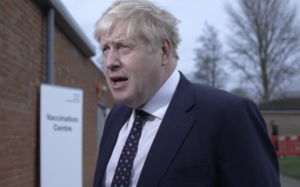
The Prime Minister, Boris Johnson’s desire to loosen the tax purse strings in the wake of ‘Partygate’ and the vote of no confidence is likely to be resisted by the Chancellor say leading tax and advisory firm Blick Rothenberg.
Nimesh Shah, CEO at the firm said: “A dramatic popular move would be to have a universal temporary reduction of VAT to 15% – this could be badged as Brexit tax cut and Alistair Darling did something similar as Chancellor in 2008 under the backdrop of the global financial crisis. VAT cut would be popular with the public and help with inflation in the short-term.”
Nimesh added: “Early reports following the Prime Minister surviving the vote of no confidence suggest that Boris Johnson will set out a series of tax cuts to repair the government’s reputation and support the cost-of-living crisis.
“The government will point to the National Insurance threshold increase in July and the £400 energy grant, but the Prime Minister will want to go further given recent events. However, the fiscally responsible Chancellor will be against any major giveaways on tax, as the economy remains on a knife-edge and the scars of the £300 billion package of support of the pandemic remain sore. Whilst the Prime Minister will want drastic immediate action on tax, I expect Rishi Sunak will have to water down any measures as he will argue the country’s finances won’t absorb this.”
Nimesh said: “What would the Prime Minister want to do? Rishi Sunak had already pre-announced a 1% cut to the basic rate of income tax to 19%, but not until April 2024. The easy move will be to bring forward this tax cut to April 2023 and make it a 2% cut.
“The 5p reduction in fuel duty in March has been completely eliminated through rising energy prices so a more dramatic reduction is needed, and the Prime Minister could see through a further immediate cut as much as another 5p.
He added: The elephant in the room remains the 1.25% increase to National Insurance for health and social care. Rishi Sunak stubbornly refused to cancel or defer this in March, and in hindsight, the measure was incredibly flawed from the beginning. It would be politically difficult to reverse this now, as the government cannot be seen to take funds away from the NHS and social care – but they could cancel the increase for those earning less than £50,000 so it only applies to higher earners.
He added: “In another flawed policy (with the benefit of hindsight), the effect of the freezing of the personal tax allowances is now more severe with record inflation. A popular and quick win would be to scrap this measure and commit to increasing these allowances and bands in line with inflation.”
Nimesh said: “Businesses are becoming concerned by the increase to corporation tax to 25% from 1 April 2023. Businesses have already suffered the 1.25% employers NIC cost, and with the threat of unemployment on the horizon if the country enters a recession, more support for business investment is needed. The Prime Minister could scrap the planned increase, or at the very least, scale back the increase to 22%, which would appeal to business owners.”
Read more:
VAT Tax cut would be popular with the public

